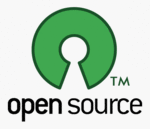 We think hardware could be truly open, but only if the correct legal frameworks are in place. And they likely are not.
We think hardware could be truly open, but only if the correct legal frameworks are in place. And they likely are not.Software has gone through all this before, of course. In the 1960’s software was basically homemade, but then commercial software companies emerged and grew in the 1970’s and 80’s. However, in the 80’s and 90’s people started to share software (much to the dismay of the commercial manufacturers). It was all pretty loose until standard legal frameworks such as the GPL and Creative Commons licenses showed up. Once they did, software sharing exploded and leave us where we are today. In software.
Now personal manufacturing emerges and we see people starting to share designs as software was shared in the 1980’s and early 1990’s. Everyone realizes there are legal concerns, and thus licenses such as Creative Commons are used. There are even a few hardware oriented licenses, such as the Open Hardware License.
But are these enough? Some people don’t think so, because hardware has somewhat different implications than software, and we can’t go on simply reusing the software licenses. What’s needed is a comprehensive, easy-to-use legal framework that covers all aspects of open hardware and becomes a popular standard. A Hardware GPL, if you will. A workshop on this topic took place on 17th March at EYEBEAM, but we have not yet been able to determine the outcomes of that event.
Like any project, this will start with the identification of all stakeholder needs, which can then be combined into a solution framework for debate. It’s important because personal manufacturing should become much more widespread in the 21st century. Let’s make that happen.
Via EYEBEAM

